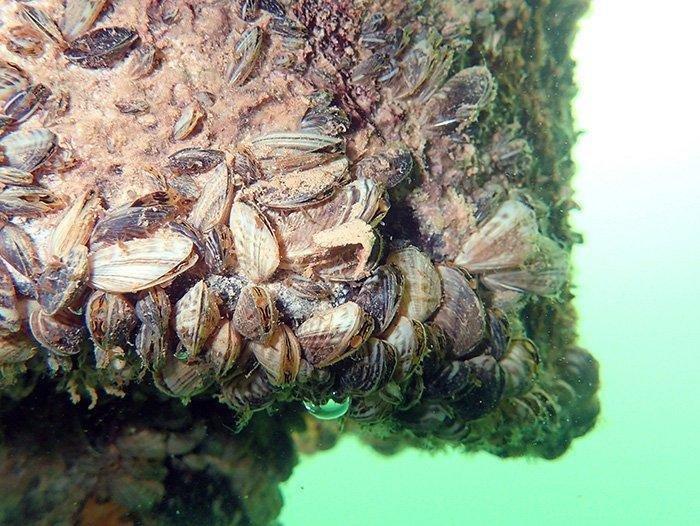DWR Press Release
As boating season approaches, DWR reminds you to clean, drain and dry
Quagga mussels are spreading in Lake Powell. By following a few simple steps, you can do much to make sure that doesn’t happen anywhere else in Utah.
With the Memorial Day weekend approaching, Division of Wildlife Resources Lieutenant Scott Dalebout encourages you to do the following this boating season:
Clean, drain and dry
Except for Lake Powell, all of Utah’s waters are considered free of quagga mussels. To keep it that way, Dalebout encourages you to clean, drain and dry your boat, even if the water you just finished boating is considered clean.
“Utah’s waters are tested for quagga mussels regularly,” he says, “but you never know when and where they might turn up. Cleaning, draining and drying your boat — after every boating trip — will help ensure any mussels that might have attached themselves to your boat, or gotten into its water supply, aren’t carried to another water.”
The simple process — which involves removing debris from your boat, draining all the water out of your boat and then allowing it to dry for a specified period of time — is available at STDoftheSea.gov.
Be patient
When you arrive at a launch ramp, there’s a good chance DWR or Utah State Parks aquatic invasive species (AIS) technicians will be near the boat ramp, visiting with boaters about where they’ve been boating and making sure boats that have been on waters infested with quagga mussels have been properly decontaminated before launching. At times, lines can get long at the launch ramps.
“Please be patient and courteous,” Dalebout says. “The technicians are working hard to keep Utah’s waters free of quagga mussels. They’re trying to get boaters through the lines as fast as they can while ensuring that any boat that might be carrying mussels doesn’t slip through.”
Remove your drain plugs
If you boat on Lake Powell, you must remove the drain plugs from your boat and leave them out until you get home. Leaving the plugs out will help ensure that all of the water in the boat drains out as you travel down the road.
Mandatory inspection stations
Utah has three mandatory quagga mussel inspection stations. If you’re pulling or transporting watercraft, including boats, personal watercraft (such as Jet Skis and Wave Runners), canoes, kayaks or float tubes, you must stop at the stations. If you don’t, you’ll likely receive a citation. Then, the officer who cited you will direct you back to the station to get your watercraft inspected.
The stations will be in operation throughout the summer. They’re located at the following areas:
- The Interstate 15 point of entry near St. George. All watercraft traveling north on I-15 must stop.
- The Daniels Canyon point of entry along U.S. Highway 40, just southeast of Heber City (near mile marker 22).Only vehicles that are traveling up the canyon with watercraft — southwest, out of Heber City and Provo — need to stop. Vehicles with watercraft traveling the opposite way down the canyon — northwest, toward Heber City — are not required to stop.
- In Garden City and Laketown near Bear Lake. All watercraft traveling to Bear Lake must stop.
In addition to the inspection stations, DWR officers and biologists also conduct administrative checkpoints along traffic routes that lead out of the Bullfrog and Wahweap marina areas at Lake Powell.
“The officers and biologists check boats for attached quagga and zebra mussels, and for standing water,” says Nate Owens, AIS coordinator for the DWR. “They also examine boats to ensure the drain plugs have been removed and have not been reinstalled. Citations are issued for violating any of these rules.”
Why the concern?
There are many reasons why Utahns don’t want quagga mussels, or their cousins, zebra mussels, in the state:
-
- Mussels can plug water lines, even lines that are large in diameter.
If mussels get into water pipes in Utah, it will cost millions of dollars to try to remove them. If you live in Utah, you’ll likely pay higher utility bill costs to try to get the mussels removed.
- Mussels remove plankton from the water, the same plankton that supports fish in Utah. The mussels could devastate fisheries in Utah.
- Mussels can get into your boat’s engine cooling system. Once they do, they’ll foul the system and damage the engine.
- When mussels die in large numbers, they stink. And their sharp shells can cut your feet as you walk along the beaches where the mussels died.


